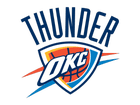
CJ McCollum, shooting guard. What you might not know: He has become a connoisseur of wine, and often visits Oregon’s renowned vineyards, about 45 minutes outside of Portland. If he’s not studying wine, he is binge-watching shows such as Ozark, Peaky Blinders and Game of Thrones. Also hosts his “Pull Up” podcast with Jordan Schultz, the son of Starbucks owner Howard Schultz.

The powerful businessman, who turned Starbucks into an international coffee behemoth and was a darling of the Seattle business community, flailed under a new kind of public scrutiny from fans and media, many of these people said. “His approach was very much a feeling of entitlement,” said Nick Licata, a Seattle city council member at the time. “ ‘Arrogance’ is probably the right word.”

In August 2001, the new owner met with two employees who had just finished a new promotional video of the SuperSonics players, inspired by the opening scenes from Guy Ritchie’s London gangster thriller, “Snatch .” Schultz was irate as employees rolled the tape. Yelling, Schultz said it made the players look like “thugs” and demanded the staff remake the video, according to a former Sonics employee in the room who spoke on the condition of anonymity for fear of professional retribution. (This employee recounted the story in 2001 to a second employee, who confirmed in an interview that they had heard it, though not Schultz’s precise words.)

Schultz’s defenders don’t deny he brought strong opinions to the job. Valerie Danna, who worked in communications under Schultz, said it was possible some employees mistakenly interpreted the former owner’s intensity for anger. “The piece about him yelling at or berating employees — it can be passion misconstrued,” Danna said.

Schultz also changed the fans’ experience but in ways that some employees criticized. Four employees said Schultz wanted the 1950s ballad “Mack the Knife” played after every game, win or lose, replacing the hip-hop that had been played. (A spokeswoman for Schultz said the team’s marketing department experimented with many songs in the arena during his ownership.) “It was one of those things that was sent down from the higher-ups: ‘Hey, this is what Howard wants,’ with an eye roll. And we’d say, ‘Okay, we have to play this song now,’ ” one employee in the Sonics’ entertainment division recalled. “He was completely out of touch, and everybody knew it.”
Advertisement

They were basketball fans still enraged by the billionaire's role in the devastating departure of the Seattle SuperSonics, the city's NBA team. For Democrats, Howard Schultz has been public enemy No. 1 for a week. For Sonics fans, he's been public enemy No. 1 for a decade.

"As a Sonics fan, I would bet Howard Schultz has a better shot at Oklahoma's electoral votes than Washington's," Washington Gov. Jay Inslee, a possible 2020 Democratic candidate himself, told NBC News in a statement.
Payton, who did not return a request for comment from NBC News, said in "Sonicsgate" that Schultz "tried to run a basketball team like his coffee business." Payton added that Sonics fans were "punished" by Schultz's attitude toward players, with their conflict ultimately leading to the franchise player’s exodus from Seattle.

As he considers a possible independent run for president, Howard Schultz is also belatedly apologizing to Seattle sports fans for his role in sending the Sonics to Oklahoma City.

Schultz writes that selling the Sonics “is one of the biggest regrets of my professional life,” saying he made a decision based on getting out of a bad financial deal instead of recognizing he should have been willing to accept losses until a local buyer emerged.
Advertisement

He ends his Sonics recollection with a direct apology: “The sharpest pains hit me not when I’m publicly insulted, but when I’m walking or driving and see someone wearing a SuperSonics T-shirt or cap. If it’s a boy with his dad, it’s like a stake through my heart. Losing the Sonics has been tragic for generations of fans, especially kids who are growing up without the benefit of an NBA team in their city. It’s a public wound I cannot heal. For that I will forever be deeply sorry.”

Adrian Wojnarowski: On the late Paul Allen: Without him, NBA would’ve abandoned the Pacific Northwest long ago. Howard Schultz sealed Seattle’s fate by selling Sonics to Oklahoma’s Clay Bennett, but Allen committed his resources to keeping the Blazers in Portland. The league’s far better for it.
If Payton — an NBA Hall of Famer who holds the all-time SuperSonics marks for scoring, assists and steals — has any resentment left for the demise of his former franchise, it's aimed squarely at former SuperSonics owner Howard Schultz. "As I look at it, that was left up to the ownership," Payton said. "I think our owner that had it before didn't take care of it. He should have made sure that it stayed in Seattle, but he did not. ... I can't fault Oklahoma City. It hurts Seattle people, but I don't have hard feelings about it. This is what happened. This is a business. It went here and this is what they are now."

Basketball legend Shaquille O’Neal refused to team up with coffee giant Starbucks because “black people don’t drink coffee.” “My agent called me up and he says ‘Howard Schultz wants to do business with you,’” O’Neal told sports reporter Graham Bensinger. “And I’m like, “coffee, eh.’ Because growing up, in my household, I’d never seen a black person drink coffee. So it was my thought process that black people didn’t drink coffee.”